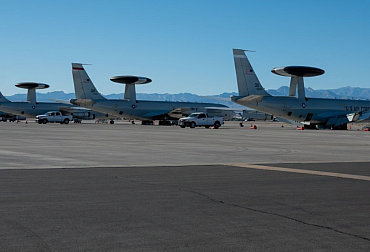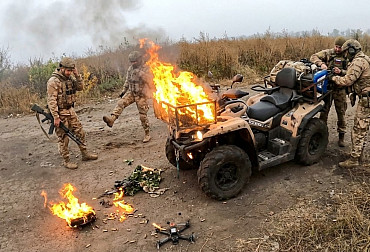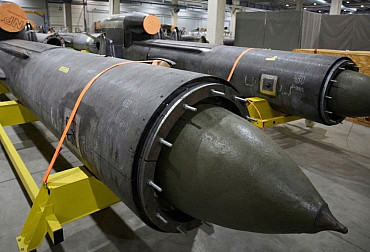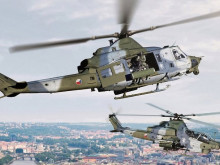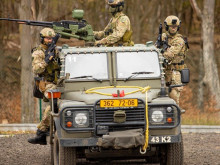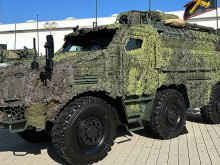Acquisition of SPYDER anti-aircraft systems and CAESAR self-propelled guns - a great opportunity for the domestic defense industry
Negotiations on the purchase of SPYDER anti-aircraft missile systems from the Israeli company RAFAEL and CAESAR self-propelled guns from the French company NEXTER do not seem to be easy, as confirmed by members of the Defense Committee after its 47th meeting. Its program included the information on current developments of the SHORAD system and NATO-caliber cannon contracts. With regard to the communication of sensitive commercial data, this point of program was closed to the public. The Committee took note of the information. The ambition of the Ministry of Defense is to sign contracts during the summer. In both cases, the issue of the involvement of the Czech defense industry plays an important role. In the case of guns, one of the key issues is the need to produce certified ammunition in the Czech Republic. For SPYDER systems, industrial cooperation offers considerable potential in relation to the high added value of technologically advanced systems. Both systems will use chassis from the TATRA company.
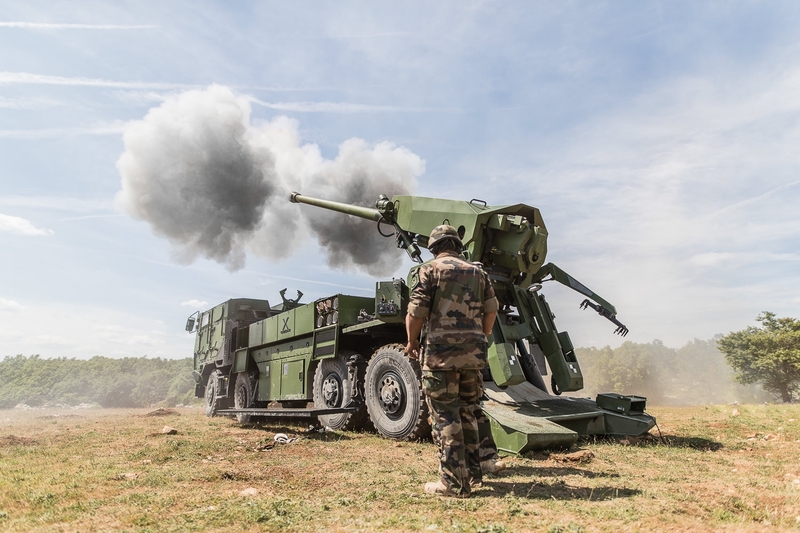
Picture: 155mm CAESAR 8x8 Self-propelled Howitzer | NEXTER Systems / CC BY-NC-ND
From the point of view of the needs of the Army of the Czech Republic, the purchase of the SPYDER system seems to be perhaps even more urgent than the acquisition of self-propelled guns. The October elections may mean another postponement, which would not bring good news for the 25th Anti-Aircraft Missile Regiment in Strakonice, resp. its 251st Battalion. However, the unit is not for itself here. Without reliable air defense, the sovereignty of airspace cannot be fully ensured, nor can sensitive infrastructure be safely protected. Enough has already been said about the obsolescence of the skillfully modernized Soviet system 2K12 KUB (SA-6) as well as the ingenuity of Czech soldiers in keeping it in service. Last September, information was published that the Army of the Czech Republic had chosen the Israeli SPYDER system as its successor. It is a very interesting choice in many respects.
On the one hand for its tactical and technical parameters, which are based on in-depth Israeli experience with the need to secure the country's airspace, and on the other hand for the possibilities offered by this advanced technology for further development of our capabilities. Furthermore, the simple fact that the SPYDER batteries use the EL / M-2084 MMR radar, which has already been purchased by the Czech Republic in a typically complex Czech acquisition process and the first should be delivered at the end of this summer (the last one until 2023). And last but not least, also due to the deepening of traditionally good Czech-Israeli relations. After all, this will be the largest order to date, which the Czech Republic will implement for its Army in cooperation with the Israelis.
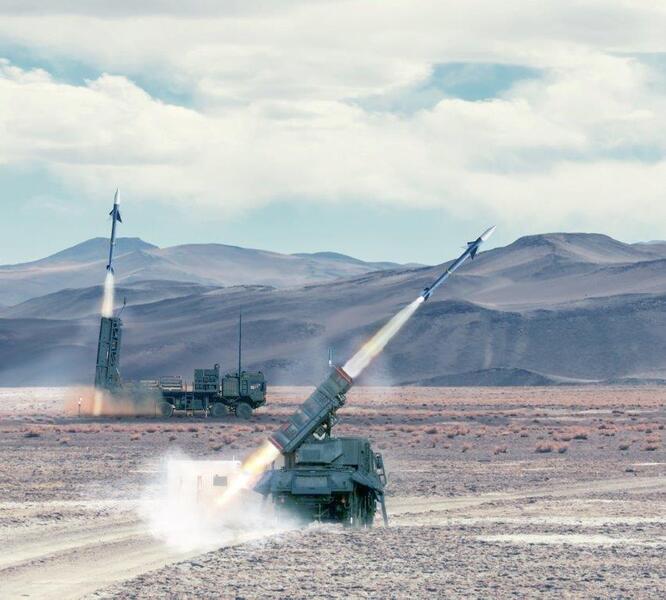 Picture: SPYDER - Short and medium range air defense system (SHORAD) | Ministry of Defense of the Czech Republic
Picture: SPYDER - Short and medium range air defense system (SHORAD) | Ministry of Defense of the Czech Republic
The importance of the successful completion of this acquisition also lies in the need to end the use of ex-Soviet and Russian technology as soon as possible, which is still significantly represented in the armament of the Army of the Czech Republic. And it's not a popular question at all whether it's worse or better than Western technology, or even a question of whether Russia could potentially offer contemporary technology cheaper than we buy from our allies in Europe, the United States, or even in Israel. And not only because we are in disfavor in Moscow at this time, and especially the other way around - although the Czech Government and Czech diplomacy can do without theatrical gestures of publishing "lists of enemies". The Vrbětice case in the media is already somewhat silent, but at the recent Alliance summit it was heard in context and emphatically. Russia is not a reliable partner, and one of the things that our armed forces certainly do not need is dependence on spare parts supplies. Although it seems so far, that, for example, in the case of helicopters, Russian companies respect the existing contractual relations.
Hungary follows a similar path as the Czech Republic. It replaces its 2K12 KUBs with the American NASAMS system. Self-confident Poland, which can be seen, at least in the Central European perspective from the military point of view as a great power, came up with its own domestic solution in the form of SPZR Poprad. To this day, Slovakia uses the ex-Soviet S-300 PMU system, which it acquired during the division of the Czechoslovak federation, and in addition to it, it also has five batteries of the KUB system. In 2017, the equivalent of the Concept of the Build-up of the Czech Army 2030 in Slovakia indicated the level of usability of aircraft and air defense equipment at approximately 58%. The first step to remedy was the purchase of F-16 fighters. The air defense is still waiting for a solution.
The Czech Republic has a good chance to solve its problem with SHORAD within a few months and to benefit from the established relations within the framework of industrial cooperation in the future. The increase in the price of both systems compared to the price originally declared on the basis of marketing surveys about five years old caused raised eyebrows at first. According to MP Karel Krejza (ODS), it was however probably not realistic to expect that the price would not move for such a time, and even according to other deputies, both sides will probably be able to find a mutually acceptable compromise.
If the Ministry of Defense was surprised by a significantly higher price offer compared to the original idea from 2016, this effect will continue to work to our detriment over time. Not only in connection with the pandemic, the prices of many commodities are rising in general, and weapon systems and other products of the defense industry cannot be an exception. One must therefore wish the Czech negotiating team strong nerves and, above all, a determination in effort. After the already announced further postponement of the signing of the contract for tracked IFVs, the Ministry of Defense has a real chance to catch up with the purchase of self-propelled guns and anti-aircraft systems, and thus improve its otherwise somewhat questionable balance in the field of acquisitions and modernization of the Army.












